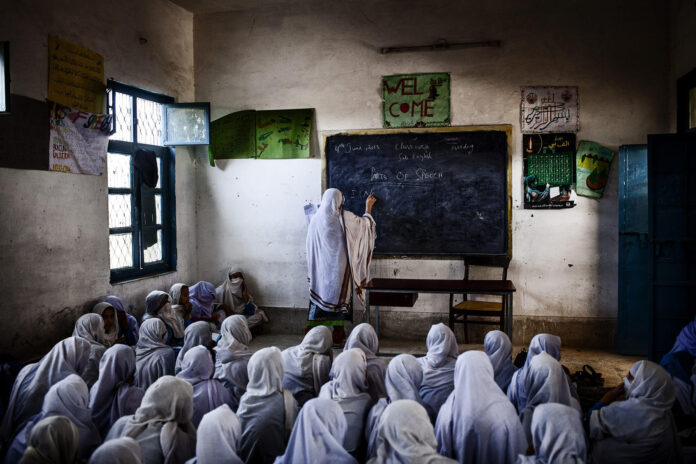WASHINGTON: The World Bank has approved a $47.9 million grant, funded by the Global Partnership for Education Fund, to help improve girls’ and boys’ participation at pre-primary and primary levels in Pakistan’s Punjab province, according to a statement.
The new support is expected to improve learning outcomes at the primary level and strengthen remedial learning support at the elementary level of schooling.
The “Getting Results: Access and Delivery of Quality Education Services and System Transformation in Punjab Project” will expand early childhood education, re-enroll out-of-school children, strengthen teacher support, and improve the education sector’s responsiveness to climate change and emergencies.
By contributing to stronger human capital and improving resilience to shocks, the project targets the needs of the poorest and most vulnerable populations, in line with the World Bank Group’s twin goals of eliminating extreme poverty and promoting shared prosperity and its Country Partnership Framework (CPF) with Pakistan.
“This project represents a crucial step towards addressing learning poverty and ensuring equitable access to quality education across Punjab,” said Bolormaa Amgaabazar, World Bank Country Director for Pakistan.
“By strengthening foundational learning, enhancing system capacity, and promoting behavioral change, the project will support long-term human capital development and economic growth in the province.”
The project aims to benefit over 4 million children, including 80,000 out-of-school children, more than 3 million children in School Education Department (SED) schools, about 850,000 children in the non-formal sector, and 140,000 differently abled children in Special Education Department (SpED) schools.
Additionally, over 100,000 teachers and school leaders, as well as parents and community members, will benefit through professional development and awareness campaigns. Indirect beneficiaries include all students in SED, SpED, and non-formal schools who will gain from broader system reforms.
“The project is aligned with the Government of Punjab’s broader education reform agenda, which seeks to create a more effective, accountable, and inclusive education system,” said Izza Farrakh, World Bank Task Team Leader for the project.
“It will do so by supporting the government’s efforts to improve governance, management, and capacity in the education sector. This includes strengthening coordination between the school, special education and non-formal education departments, empowering schools, and building partnerships with communities to ensure sustainable results.”




